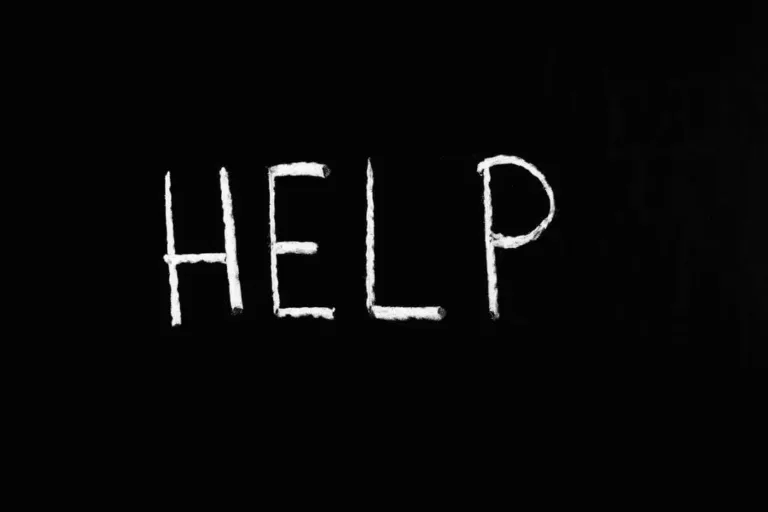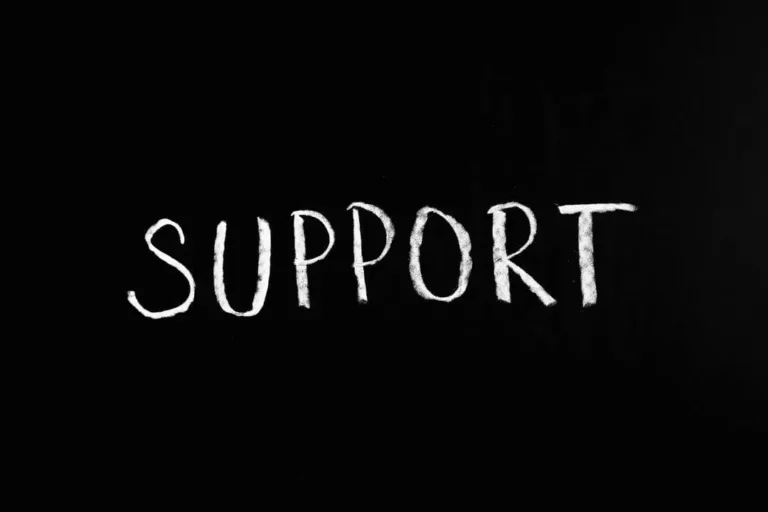8 Signs You’re Healing From Narcissistic Abuse!

Healing from Narcissistic abuse is one of the most difficult forms of abuse to heal from because it can be so hard to identify. Narcissistic abuse is usually very subtle and so hideous that people just can’t see it. Narcissists will do everything in their power to isolate you so you have no outside support.
You must know what signs of Narcissistic abuse and the indicators that you’re healing from narcissistic abuse, so let’s dive into this!
A Big indication that you are healing from narcissistic abuse is your ability to identify the signs of narcissistic abuse. This may be hard for someone who has never experienced it before, but the more you learn about this type of abuse and what makes it different than other types of emotional or physical abuse, the easier it will become to identify.
The Cycle of Narcissistic Abuse Tends
to go like this:

Are You in a Relationship with a Narcissist?
To be in a relationship with someone narcissistic is fragmenting. They will fragment every part of who you are into multiple pieces until you no longer recognize who you are.
Narcissists see nothing wrong with manipulating and lying to others to gain control or get what they want. When you are in a relationship with a monster, you will lose your autonomy to make decisions that are best for you because your decisions are made on the lies that are used by the narcissist.
They have zero empathy, and none of their behavior affects them as they carry on with living day to day as if what they do is normal. They believe the world around them is like they are. Are you with a Narcissist?
Enduring Impact of Narcissistic Abuse
Surviving narcissistic abuse can leave a lasting imprint, leading to a spectrum of effects that can be challenging to manage. These impacts can range from mild to severe, with some even having the potential to be life-threatening.
Here are some of the enduring effects that victims of narcissistic abuse may experience:
- Mental Health Disorders: Conditions such as anxiety, depression, and post-traumatic stress disorder (PTSD) can develop as a result of emotional trauma.
- Diminished Self-Esteem: Victims often struggle with feelings of low self-worth, leading to a sense of losing their identity.
- Self-Blame: A tendency to internalize the abuse can result in an inability to forgive oneself due to a perceived sense of unworthiness.
- Physical Symptoms: Stress can manifest physically, leading to headaches, stomach discomfort, or generalized body aches.
- Sleep Disturbances: High-stress levels and incessant worrying can lead to difficulties in falling asleep or maintaining sleep.
- Nightmares: Distressing dreams can be a common occurrence.
- Memory Issues: Short-term memory loss can be a side effect of sustained stress.
- Emotional Instability: Mood swings and irritability can become frequent.
- Emotional Numbness: A sense of emotional disconnect or feeling that something is amiss in the surrounding world can develop.
- Resentment: Feelings of vengeance or hatred towards the abuser may persist.
- Increased Risk of Mental Disorders: If the abuse occurred during childhood, the risk of developing mental health conditions like depression, anxiety, or PTSD is heightened.
- Trust Issues: Long-term manipulation can lead to difficulties in trusting others.
- Hyper-Sensitivity: An increased sensitivity to criticism or judgment can develop.
- People-Pleasing Behavior: In an attempt to gain approval, victims may develop a tendency to excessively please others.
- Self-Punishment: Victims may engage in self-destructive behaviors such as substance abuse, reckless spending, or overeating as a form of self-punishment.
Is Narcissistic Abuse Lethal? A Closer Look
Let’s sit down and really talk about this – the impact of narcissistic abuse. It’s a tough topic, but it’s so important to understand.
You see, while this kind of abuse might not directly cause physical harm, it can set off a domino effect that leads to some serious, even life-threatening situations.
Think about it like this – one of the ways people try to cope with emotional pain is by turning to substances. It’s like a temporary escape, you know? But this can spiral into addiction, which comes with its own set of health risks. In the worst cases, it can even be fatal.
And we can’t forget about the mental health side of things. The impact of narcissistic abuse on a person’s mental health is huge. Depression and anxiety are common struggles for survivors.
And sometimes, these feelings can become so intense that they lead to thoughts of suicide. It’s heartbreaking, but it’s a reality we need to face.
So, while narcissistic abuse might not directly cause death, the long-term effects can lead to seriously dangerous situations.
It’s so important to recognize these risks. And remember, it’s okay to ask for help. Professional support can make all the difference in navigating the healing process. You’re not alone in this.
Here Are Some Signs that you are in a Relationship with a Narcissist:
The narcissist is always right, you’re wrong!


You do not feel like yourself; you have changed, and it is a change that does not feel good.
How to Begin Healing from Narcissistic Abuse
When you are in an unsafe environment, it is hard to heal. You need to get away from the narcissist. If you stayed with a person who abuses you for a long time, you have typically grown accustomed to the misery of the environment.
After many months or years, you will need the space to find yourself again. If you are with a narcissist, go for no contact or minimal contact. If you have kids, try to get away from the narcissist.
If you have kids, they will be the new weapon to use to hurt you. Once you leave, it will become clear that the Narcissist hates you more than they love their own children by how they use them to get to you.
Remember, narcissists cannot love anyone, and certainly do not love their children. It is a power and control issue for them.
With minimal contact, you need to see the narcissists for what they are and keep your expectations low. You can be sure that this person will try to get you back into the relationship.
But if they can’t do that, they won’t show empathy or understanding in your interactions with them. Remember, do not give in and give them any EMOTIONAL reaction. This only validates their own inner narcissism.
Navigating the Road to Recovery from Narcissistic Abuse
Experiencing narcissistic abuse can leave deep scars, impacting every facet of your life. It’s not uncommon to lose friends, family, or even jobs while entangled with an abuser.
While the journey to recovery may be long and complex, it’s absolutely possible. Let’s walk through this journey together, step by step.
Recognizing the Abuse
The first step on the road to recovery is acknowledging the abuse. Narcissistic abuse can be so subtle that you might spend a long time questioning whether it even happened.
You might have spent so long rationalizing the abuser’s behavior that accepting it as inexcusable can be tough. But remember, denying the abuse only robs you of the chance to address it.
For children who’ve suffered narcissistic abuse, acknowledging it can be even harder. They might be confused or even blame themselves. They must understand that they did nothing to deserve such treatment.
Drawing the Line with Your Abuser
Narcissistic abusers often promise to change, but don’t be fooled – it’s just another manipulation tactic. That’s why setting boundaries is so important. If possible, cut all ties. Block their number, and shut down any other avenues they might use to contact you.
But what if going no-contact isn’t an option? If your abuser is a family member or you share children, you’ll need to set firm boundaries. Be clear that you won’t tolerate their abusive behavior, and be ready to remove yourself from any interaction where abuse is present.
Working Through Your Emotions
Breaking free from an abusive relationship can unleash a torrent of emotions – sadness, anger, grief, and, in the case of narcissistic abuse, often shame, suspicion, fear, anxiety, or even symptoms of PTSD.
It’s important to work through these feelings in a healthy way. Consider seeking the help of a therapist, who can provide a safe and neutral environment for you to process your emotions.
Remember, it’s okay to feel pain. It’s a necessary part of the healing process. Allow yourself to feel each emotion, process it, and let it pass.
Rediscovering Yourself
In the aftermath of narcissistic abuse, it’s time to focus on you. Rediscover who you are, reconnect with friends and family, and practice self-care. The National Domestic Violence Hotline suggests that self-care can significantly improve your self-esteem and aid in your recovery.
This could include positive affirmations, exercise, breathing exercises, or even picking up a new creative hobby.
Shifting your focus back onto yourself after focusing so long on someone else can be challenging. But remember, it’s okay to take it slow. Healing takes time.
Seeking Professional Help
Recovering from narcissistic abuse is a tough journey, and it’s okay to seek professional help. A trained mental health professional/or Trauma Coach can validate your emotions, help you process complex feelings, and guide you toward appropriate therapy.
Therapies that might help include cognitive behavioral therapy (CBT), trauma-focused CBT, motivational interviewing, eye movement desensitization reprocessing (EDMR), and art therapy.
Remember, it’s okay to ask for help. You’re not alone in this journey. Together, we can navigate the road to recovery.

Create a support system around you that will help you implement some techniques to keep you in reality. Remember, you have experienced some of the most detrimental psychological abuse inflicted on humans. It is important to learn presence.
Put together a trusted group of family or friends, or work with a coach. I have an 8-week Narcissistic Abuse Recovery Program.
Signs You Are Healing From Narcissistic Abuse
Healing will be different for every person; we are all unique with our own life experiences that will play a role in how we move beyond this monstrous experience. Some may take a few weeks, others may need a few years.
As for me, I went through many changes, including a dark night of the soul, and a rebirth spiritually. These experiences are life-altering, no matter how bad they got, I can promise you that there is light and you will prosper into a much more authentic version of yourself as you move beyond this nightmare.

- You are beginning to find things you enjoy again, and you are no longer obsessing over the narcissist. The ever-present in your mind is fading.
- You will be more in touch with your feelings. You might not need to distract yourself as much from the outer world. You are feeling the alignment with your inner world.
- You are starting to take care of yourself and implement habits that are in your best interest. Eating healthier, meditation or yoga, and intentionally checking in with your inner feelings.
- Your mind is no longer wandering off, living in the past; you find yourself more present.
- You are beginning to feel a sense of relief, you are seeing what a nightmare you have survived and what it has taught you about yourself.
- You are no longer afraid to talk about your experience and feel the desire to be of service to others who are experiencing this trauma.
- You are starting to trust yourself again. And I mean in an intuitive way. You are following what you feel more and more.
- Finally, you are smiling more.
Being in a relationship with a narcissist is not good. For most who have experienced an intimate relationship with a narcissist, it is an absolute nightmare and one of the worst acts of betrayal a human can experience by another human.
It makes your body feel like it is always fighting, running away, or freezing. You will feel better when you are not around the narcissist. Time helps, but you will have to choose to heal to fully understand what you have experienced.

A word from Create Higher Vibrations
The post was written to provide hope and encouragement for those who have experienced narcissistic abuse. The key is to focus on yourself and your future, and how you move into the best version of yourself from this experience.
It’s important to take care of yourself with healthy habits like meditation or yoga, or other healthy habits you enjoy, in order to stay grounded during the healing process.
You can’t change them, so it might be best if you cut off all contact altogether! For more help navigating these difficult waters, feel free to reach out to me anytime!!


